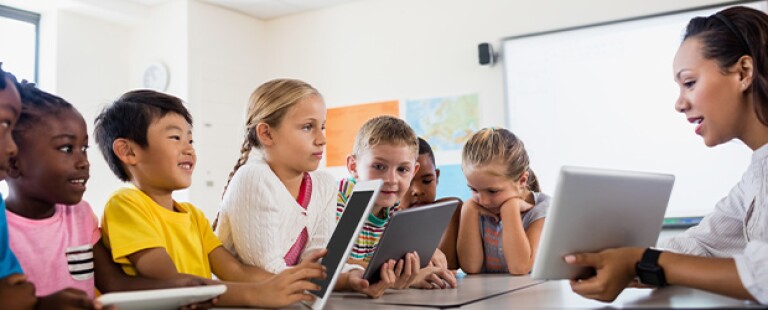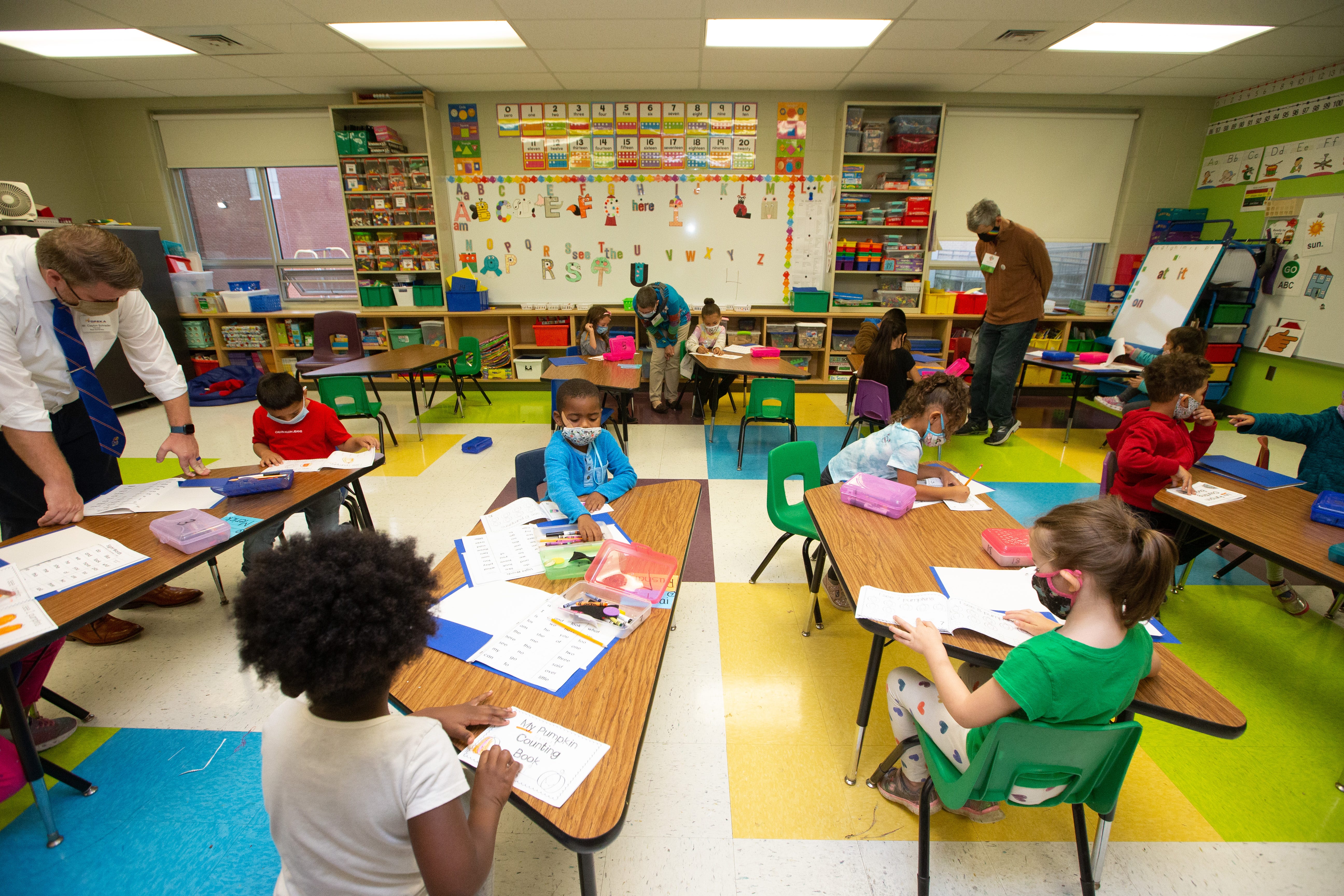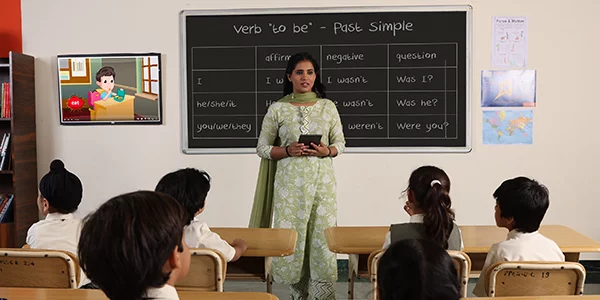Boost Your Child’s Confidence with Primary Science Tuition Singapore
Boost Your Child’s Confidence with Primary Science Tuition Singapore
Blog Article
Discovering the Different Teaching Approaches in Primary Scientific Research Education Today
The landscape of primary science education and learning is advancing, with various training methods getting importance in modern class. Inquiry-based understanding, hands-on experiments, and the integration of innovation are redefining how teachers involve young minds. In addition, collaborative methods and distinguished guideline are being utilized to accommodate the diverse demands of students, enhancing both involvement and understanding. As we analyze these methodologies, inquiries arise about their effectiveness and the ramifications for future instructional methods. What might these shifts in technique mean for the next generation of learners?
Inquiry-Based Discovering
Inquiry-Based Knowing (IBL) is an instructional approach that encourages students to explore clinical ideas with questioning, investigation, and hands-on testing. This technique stresses the function of students as active participants in their discovering, promoting important reasoning and analytical abilities. By engaging with real-world concerns, students come to be curious and inspired, which enhances their understanding of clinical principles.
In IBL, teachers serve as facilitators, guiding trainees as they navigate their questions rather than delivering info straight. This student-centered technique permits distinction, suiting numerous discovering speeds and styles. Students establish skills in formulating hypotheses, making experiments, and analyzing data, which are critical for scientific literacy.
In addition, IBL fosters cooperation among pupils, motivating them to share concepts and findings. This cumulative inquiry promotes social skills and a feeling of community within the classroom. Additionally, the procedure of query urges durability, as trainees find out to accept failure as a stepping rock toward understanding.
Hands-On Experiments
Hands-on experiments are an important component of efficient science education and learning, complementing the concepts of inquiry-based knowing. These experiments allow students to engage straight with clinical concepts, fostering a deeper understanding through experiential knowing. By controling products and observing outcomes, young students can grasp abstract theories in substantial means.
Such tasks advertise essential reasoning and problem-solving abilities, as pupils hypothesize results, conduct experiments, and analyze results. This process urges them to ask concerns, fine-tune their understanding, and create a clinical attitude. In addition, hands-on experiments can be tailored to varied understanding designs, ensuring that all trainees have the possibility to engage meaningfully with the content.
Furthermore, hands-on experiments typically urge cooperation among peers, advertising team effort and communication skills. Operating in groups enables pupils to share ideas, talk about findings, and pick up from each other, which enhances their total academic experience.
Incorporating hands-on experiments right into the primary scientific research curriculum not only enhances the finding out environment yet additionally cultivates a lifelong rate of interest in scientific research. By proactively joining their education, trainees are more probable to develop a passion for clinical questions that prolongs beyond the class.

Innovation Combination
Incorporating innovation into main scientific research education has ended up being significantly crucial in fostering student interaction and boosting discovering end results. The use of electronic tools, such as interactive simulations, online laboratories, and instructional software application, supplies pupils with opportunities to check out scientific ideas in ingenious ways. These resources promote a much deeper understanding of complicated topics by enabling students to picture and manipulate variables that would be not practical in a standard class setup.
Furthermore, innovation combination urges personalized discovering experiences. Pupils can proceed at their own pace, reviewing challenging concepts via multimedia resources, which provide to different discovering designs. This adaptability not just sustains specific growth yet also grows a feeling of freedom in students.
In addition, modern technology serves as a bridge to real-world science, connecting students with existing research and specialist contributions. Accessibility to on-line data sources and clinical journals widens students' viewpoints on scientific inquiry and fosters important thinking abilities.
Collaborative Discovering
Joint learning plays an important function in key scientific research education and learning by promoting team effort and communication skills among pupils. This strategy urges learners to collaborate, share understanding, and involve in analytic, which enhances their understanding of clinical concepts. By taking part in group tasks, pupils find out to express their concepts, pay attention to varied point of views, and discuss description solutions, every one of which are necessary abilities in both academic and real-world contexts.

Research study shows that joint understanding can bring about raised motivation and interaction in science subjects, as students locate enjoyment in common experiences (primary science tuition Singapore). In addition, this strategy prepares trainees for future joint undertakings, equipping them with the skills necessary for reliable team effort in college and expert atmospheres. Inevitably, accepting collaborative understanding in key scientific research education and learning can substantially improve the discovering experience and promote a much deeper understanding of scientific inquiry
Distinguished Guideline

Separated guideline can show up in various methods, such as differing the web content, procedures, or products of learning. Teachers may visit this page use tiered assignments that supply differing levels of complexity, enabling pupils to work at their respective readiness degrees. Furthermore, adaptable organizing approaches can assist in partnership among pupils with click for more info different capabilities, fostering peer knowing.
Assessment plays a crucial role in this method, as it educates guideline and assists instructors understand each trainee's one-of-a-kind needs. Developmental analyses, such as quizzes and observations, can guide instructors in adjusting their strategies to enhance discovering outcomes. primary science tuition Singapore. Inevitably, by applying set apart instruction in main science education and learning, educators can grow a much more efficient and fair learning environment, equipping all trainees to reach their full potential in understanding clinical phenomena
Verdict
In recap, the diverse training methods in primary scientific research education and learning, consisting of inquiry-based understanding, hands-on experiments, technology assimilation, collective knowing, and set apart direction, jointly add to an extra effective knowing atmosphere. These methods advertise critical reasoning, analytic skills, and a deeper comprehension of scientific ideas. By executing these strategies, instructors can create engaging and supportive classrooms that attend to the varied needs of trainees, inevitably cultivating a lifelong passion in science and boosting scholastic achievement.
Inquiry-Based Learning (IBL) is a pedagogical strategy that motivates trainees to check out scientific ideas through questioning, investigation, and hands-on trial and error.Collective knowing plays a crucial function in primary science education by promoting team effort and communication abilities among students.Research indicates that collective discovering can lead to raised motivation and involvement in science topics, as students find enjoyment in shared experiences.In promoting an inclusive knowing environment, differentiated instruction arises as a crucial technique to accommodate the varied demands and capabilities of students in main scientific research education. Ultimately, by applying set apart guideline in main science education, educators can cultivate a much more equitable and efficient understanding setting, equipping all pupils to reach their complete capacity in recognizing scientific sensations.
Report this page